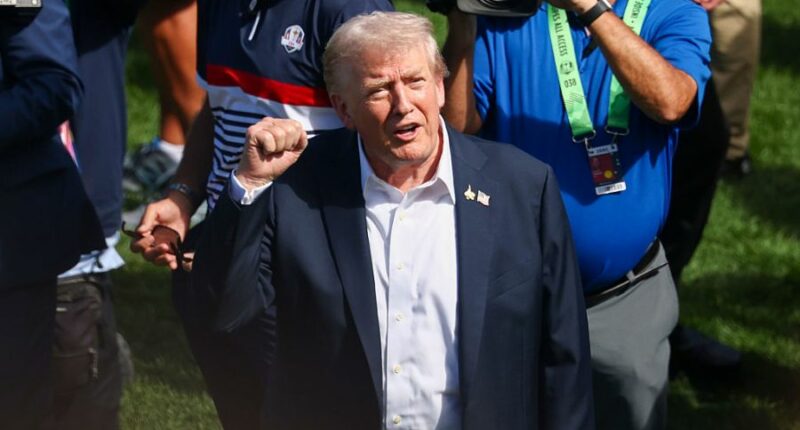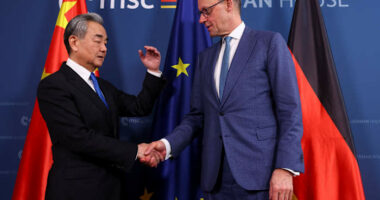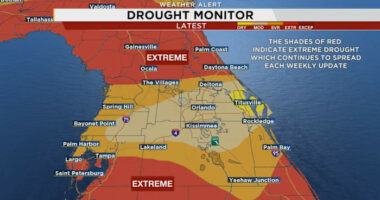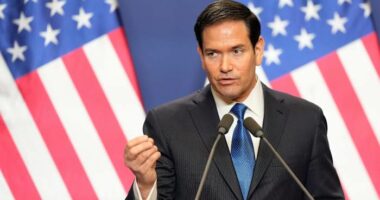Share this @internewscast.com

President Donald Trump announced this week that he intends to use “some of that tariff money” to support American farmers impacted by the levies as he revealed additional tariffs on pharmaceuticals and furniture.
On Thursday, Trump stated he would apply import taxes of 100% on pharmaceutical drugs, 50% on kitchen cabinets and bathroom vanities, 30% on upholstered furniture, and 25% on heavy trucks, effective Oct. 1.
Although Trump did not offer a legal rationale for the tariffs, he asserted that the taxes on imported kitchen cabinets and sofas were necessary for “National Security and other reasons.”
According to Trump’s post on Truth Social, the pharmaceutical tariffs would exclude companies constructing manufacturing plants in the United States, defined as either “breaking ground” or being “under construction.” The application of tariffs on companies with existing U.S. factories was not clarified.
The U.S. agricultural sector is expressing concerns regarding Trump’s tariffs, particularly those on China, America’s leading buyer of soybeans and sorghum. Farmers report decreased overseas orders as their regular clients have sought alternative suppliers.
“I’m not optimistic that China is going to come back and buy in droves, which is really what we need,” Iowa farmer David Weaver commented. “China has been our best soybean customer for years, for decades. And when your best customer starts having doubts, then that isn’t good for the farm economy.”
Agricultural policy experts say at this point, those markets may be gone for good, even if tariffs are lifted.
Trump said tariffs have brought $31 billion to the U.S., though hard data for that number has not been publicly released. A chunk of that revenue will go to making sure “our farmers are in great shape,” Trump said.
The exact amount of money for each farmer and how it would be disseminated was not made immediately clear.
In April, Agriculture Secretary Brooke Rollins told the administration was working on a package to help mitigate damage done by tariffs to U.S. farmers “if necessary.”
‘s Anna Kutz contributed to this report.










